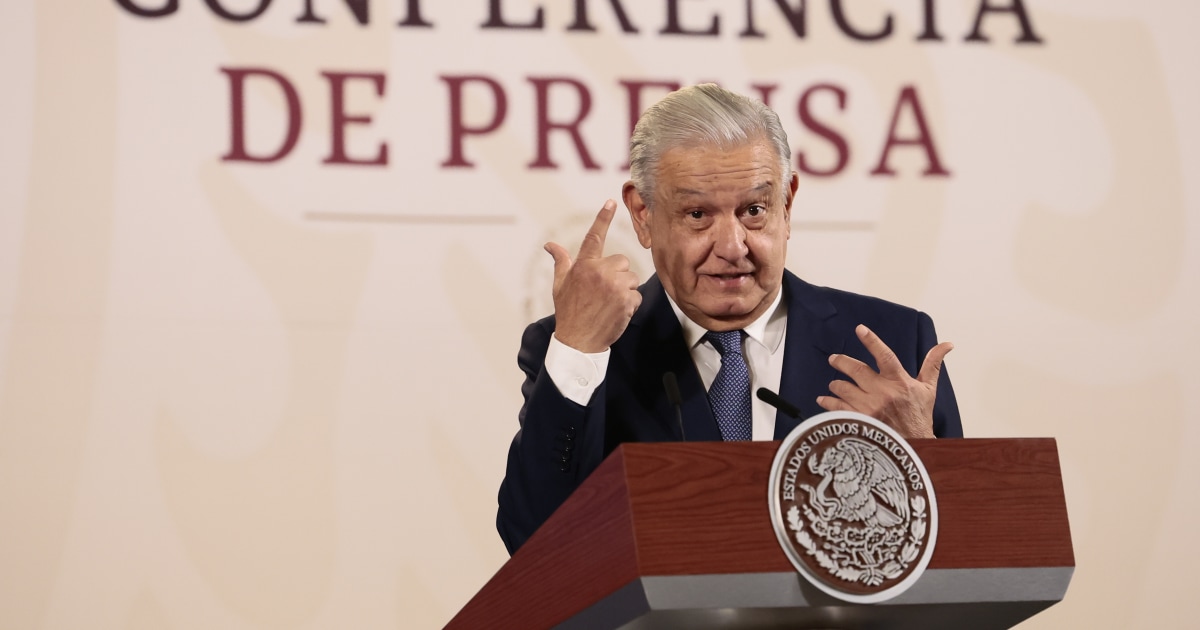The Chamber of Deputies, during the vote on the energy initiative Chamber of Deputies / EFE / Chamber of Deputies
The Mexican Congress has practically buried one of the insignia of the previous administration, the energy reform of Enrique Peña Nieto.
The Senate has generally approved by 68 votes in favor and 58 against a new model that, sponsored by President Andrés Manuel López Obrador, seeks to prioritize the Federal Electricity Commission (CFE) over private plants, many of them renewable.
Morena, the president's party, has insisted on the need to strengthen the parastatal electricity company, while the opposition has highlighted the brake that it will impose on the development of wind and photovoltaic.
This vote places Mexico in the opposite direction to international efforts to combat climate change.
The preferred initiative, sent by the president in early February, crossed the legislature at a gallop.
In the Chamber of Deputies, an open parliament with members of civil society was organized, discussed in commissions, and voted on in less than a month.
In the Senate, it was even faster.
The parliamentary majority of Morena and its allies refused to organize a forum, as the lower house had done, considering it a "waste of time", and the initiative went directly to the Energy, Environment and Legislative Studies committees, where it was voted on Monday and then to the plenary session, where Tuesday's session lasted until dawn the next day.
He had three weeks to spare.
The vote on the modifications to the Electricity Industry Law has not presented surprises: Morena and the Labor Party, in favor;
PRI, PAN, PRD, the Green Party and the Citizen Movement, against.
The former have highlighted the objective of strengthening the parastatal power company, in speeches drenched in nationalism and abundant accusations of corruption against the previous government and companies.
For Senator Ana Lilia Rivera, from Morena, the old model "unduly privileges its [CFE] competitors thanks to unfair practices."
The new one seeks, as he said, "to retake the resources of our country."
"Without energy sovereignty we are not free."
On the other side of the hemicycle, the opposition has warned that the legal change will stop private investment in renewable energy and has indicated that this is unconstitutional.
"What he is planning is a scenario of higher energy costs, of non-compliance with international treaties," said Senator Julen Rementería, from Acción Nacional.
“It will surely be fought in court and lose, and it poses a scenario of insufficient energy.
In practice, the main competitors [of the CFE] are going away ”.
The reform represents a swerve in the country's energy policy.
The previous legal framework, a product of the liberalization of the sector promoted by Peña Nieto, established the principle of economic dispatch, by which the cheapest plants, generally renewable plants in private hands, were the first to upload electricity to the grid .
The new law ends this order of preference based on generation costs and gives priority to CFE plants, whether or not they are clean energy.
In this way, public thermal power plants that run on fuel oil, a polluting derivative of oil, pass over the photovoltaic or private wind farms.
It is not the only controversial point.
The modifications eliminate the obligation to hold auctions, a mechanism by which the CFE contracted energy at a low price and which served as a lever for the development of the renewable sector in the country, and open the door to review contracts already signed.
Self-supply permits, widely used by companies to supply electricity from private sources, may be revoked in the event of "fraud against the law."
The same occurs with the old CFE contracts with Independent Energy Producers (PIEs), whose profitability and legality will be reviewed.
The vagueness of these clauses allows great discretion, fears the private sector.
The future of the new energy framework, even after its approval, is uncertain.
The opposition parties have already threatened to file a constitutionality action before the Supreme Court.
The Federal Economic Competition Commission, an autonomous body that also has the power to appeal to the highest court, warned two weeks ago that the reform violates the principle of free competition in the Constitution and recommended that Congress not approve it.
Subscribe here
to the
newsletter
of EL PAÍS México and receive all the informative keys of the current situation of this country


/cloudfront-eu-central-1.images.arcpublishing.com/prisa/SUXSGP2YZBHQLNK4QN5DDKB32U.jpg)
/cloudfront-eu-central-1.images.arcpublishing.com/prisa/RK3AI2H26NFTRJ3VH3EVPP573E.jpg)



/cloudfront-eu-central-1.images.arcpublishing.com/prisa/ROUPNH6I55BCHIXUOGEHSJZB6Y.jpg)

/cloudfront-eu-central-1.images.arcpublishing.com/prisa/6YVGDXFAWRX3CRBJPUPWBML5SI.jpg)





